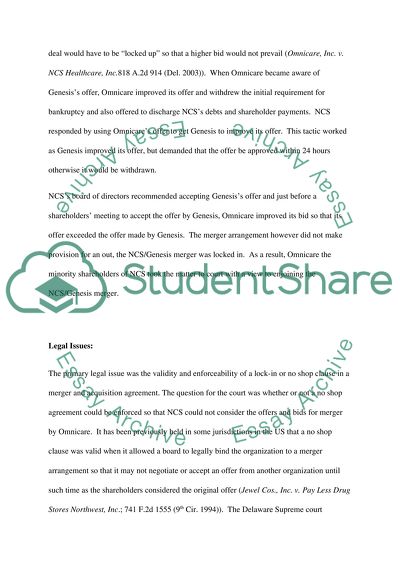Cite this document
(“Mergers and Acquisitions Research Paper Example | Topics and Well Written Essays - 2000 words”, n.d.)
Retrieved from https://studentshare.org/law/1424161-merger-and-acquisition-ma-law
Retrieved from https://studentshare.org/law/1424161-merger-and-acquisition-ma-law
(Mergers and Acquisitions Research Paper Example | Topics and Well Written Essays - 2000 Words)
https://studentshare.org/law/1424161-merger-and-acquisition-ma-law.
https://studentshare.org/law/1424161-merger-and-acquisition-ma-law.
“Mergers and Acquisitions Research Paper Example | Topics and Well Written Essays - 2000 Words”, n.d. https://studentshare.org/law/1424161-merger-and-acquisition-ma-law.


